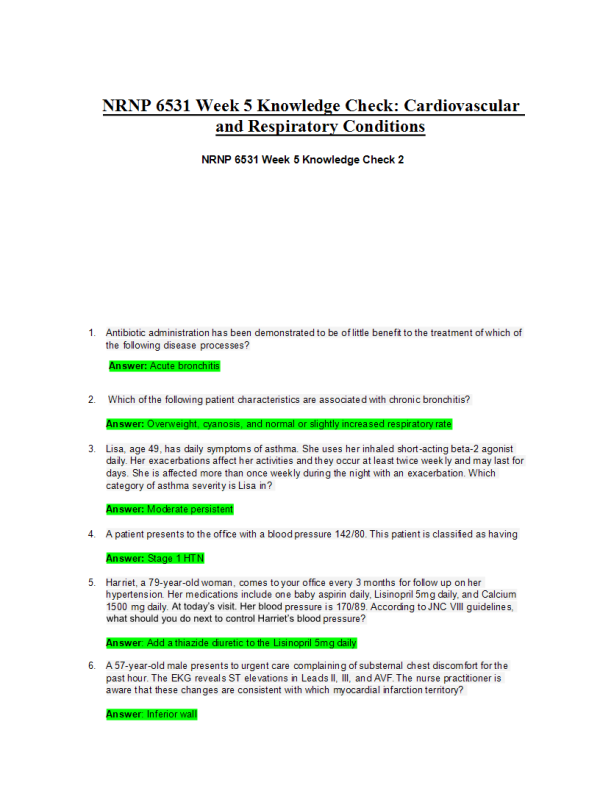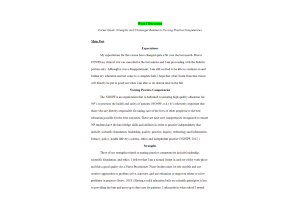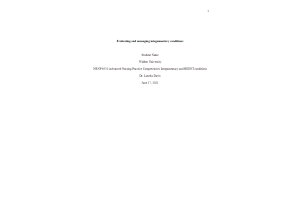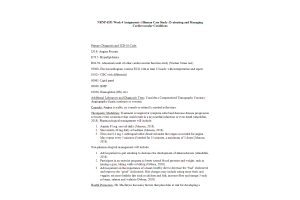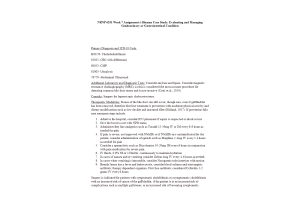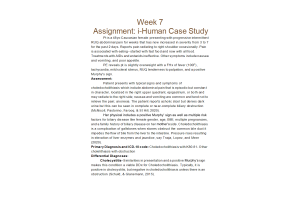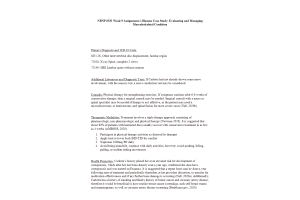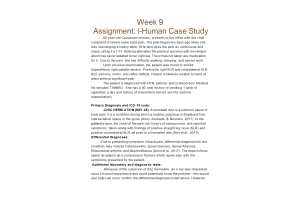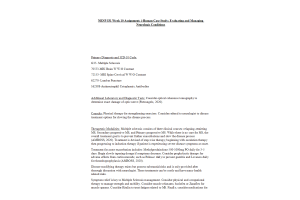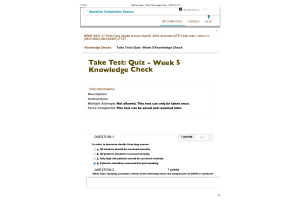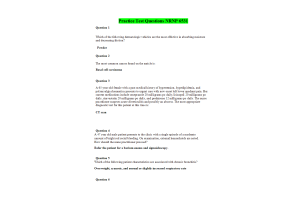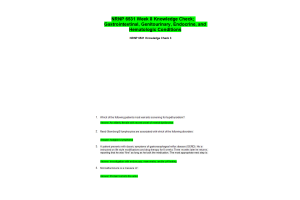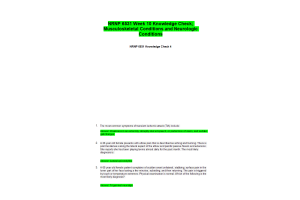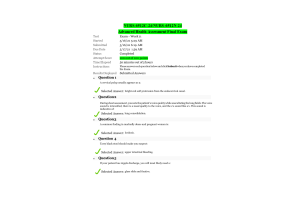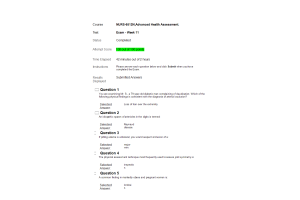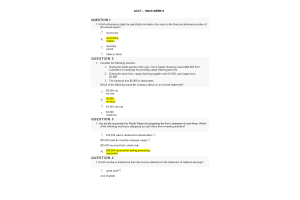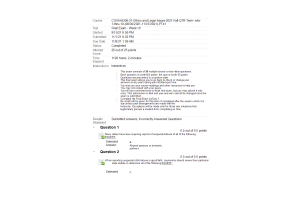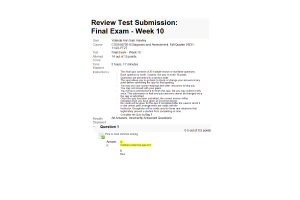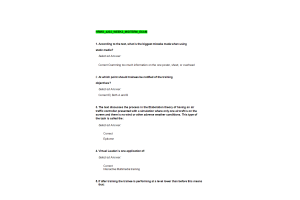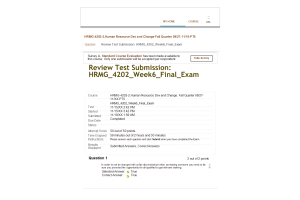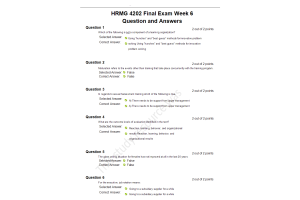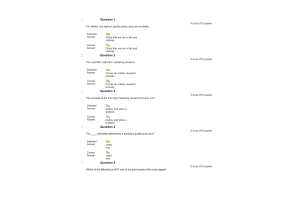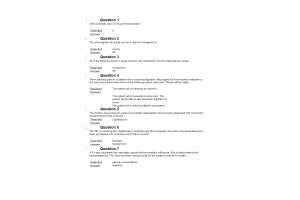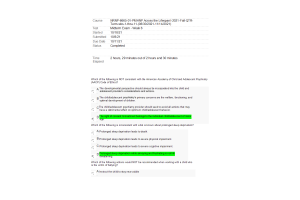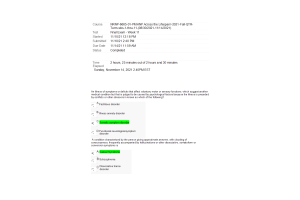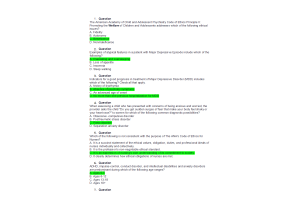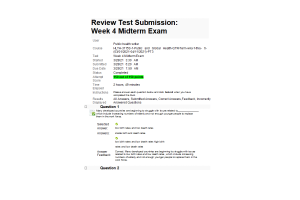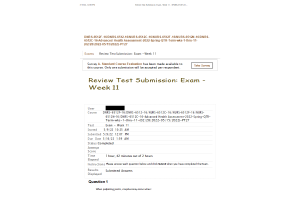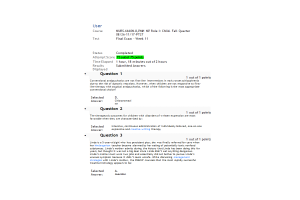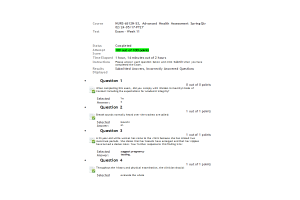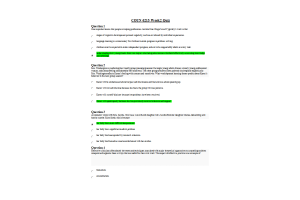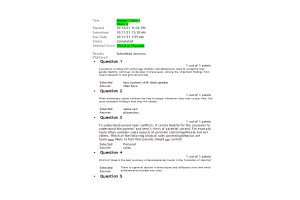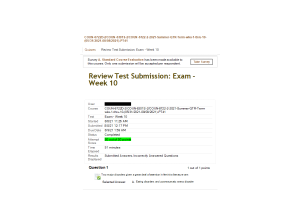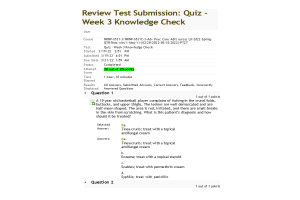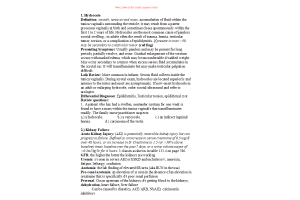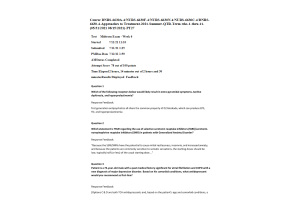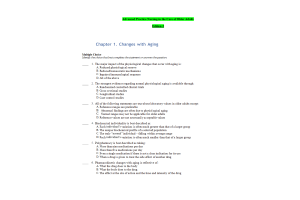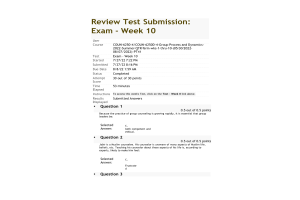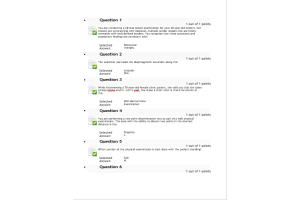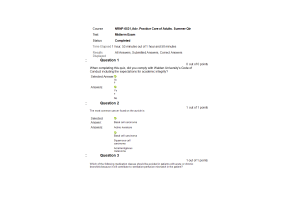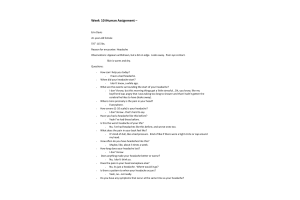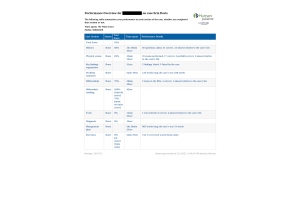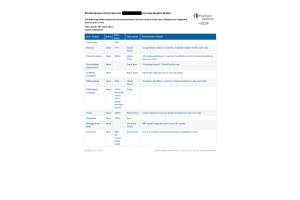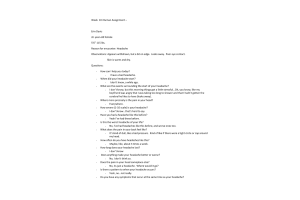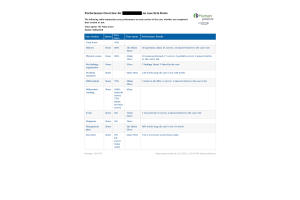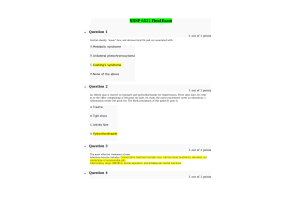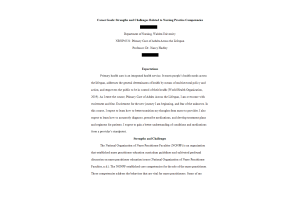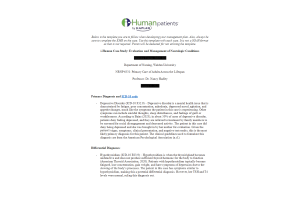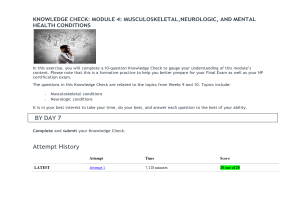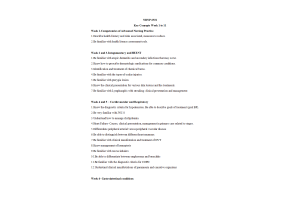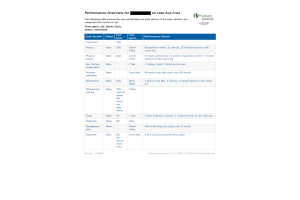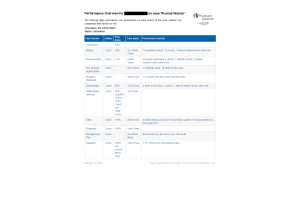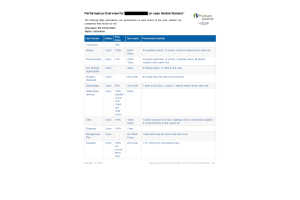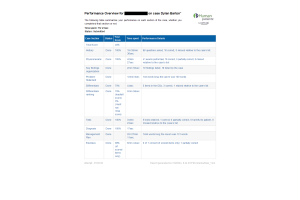NRNP 6531 Week 5 Knowledge Check; Cardiovascular and Respiratory Conditions
- $25.00
- Question: Antibiotic administration has been demonstrated to be of little benefit to the treatment of which of the following disease processes?
- Question: Which of the following patient characteristics are associated with chronic bronchitis?
- Question: Lisa, age 49, has daily symptoms of asthma. She uses her inhaled short-acting beta-2 agonist daily. Her exacerbations affect her activities and they occur at least twice weekly and may last for days. She is affected more than once weekly during the night with an exacerbation. Which category of asthma severity is Lisa in?
- Question: A patient presents to the office with a blood pressure142/80. This patient is classified as having
- Question: Harriet, a 79-year-old woman, comes to your office every 3 months for follow up on her hypertension. Her medications include one baby aspirin daily, Lisinopril 5mg daily, and Calcium 1500 mg daily. At today’s visit. Her blood pressure is 170/89. According to JNC VIII guidelines, what should you do next to control Harriet’s blood pressure?
- Question: A 57-year-old male presents to urgent care complaining of substernal chest discomfort for the past hour. The EKG reveals ST elevations in Leads II, III, and AVF. The nurse practitioner is aware that these changes are consistent with which myocardial infarction territory?
- Question: Which of the following best describes hyper trophic cardio myo pathy?
- Question: Which type of lung cancer has the poorest prognosis?
- Question: Salmeterol (Servent) is prescribed for a patient with asthma. What is the most important teaching point about this medication?
- Question: An 8 year old presents to the health clinic with history of acute onset severe sore throat and respiratory distress with stridor in the last 2 hours. The child’s history is positive for fever and pharyngitis for 2 days. What is the most likely diagnosis?
- Question: The most common correlate(s) with chronic bronchitis and emphysema is(are):
- Question: Which of the following medication classes should be avoided in patients with acute or chronic bronchitis because it will contribute to ventilation-perfusion mismatch in the patient?
- Question: Which drug category contains the drugs that are the first line Gold standard therapy for COPD?
- Question: Management of a patient with hypertension and an abdominal aortic aneurysm would include:
- Question: A patient presents tour gent care complaining of dyspnea, fatigue, and lowerextremityedema. The echocardiogram reveals and ejection fraction of 38%. The nurse practitioner knows that these findings are consistent with:
- Question: Other than smoking cessation, which of the followings lows the progression of COPD in smokers?
- Question: What condition is associated with mucus production greater than 3 months per year for at least 2 consecutive years?
- Question: Which of the following is not a risk factor for coronary arterial insufficiency?
- Question: A 20 year old is diagnosed with mild persistent asthma. What drug combination would be most effective in keeping him symptom-free?
- Question: In order to decrease deaths from lung cancer:
